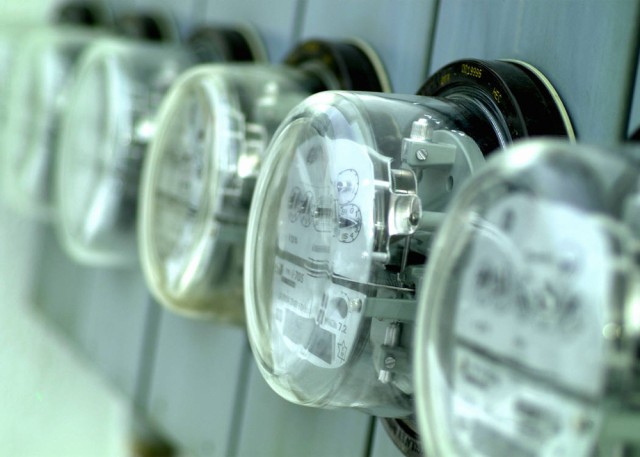GRAFENWOEHR, Germany -- An annual reconciliation of your German utility bills will help avoid a nasty surprise when it comes time to move. If you live in private rental housing you must make yourself aware of how your utilities are getting billed and paid.
"Utilities" include cold water, sewage, trash, chimney sweeping, heating fuel, insurance and electricity. Get a copy of your lease and read through it. You can probably scratch some of those items off the list of things you need to pay for yourself because they are being paid by your landlord. But you probably also have some utilities that you need to pay every month yourself.
In Germany, unlike in the United States, utility companies only read the meter once per year. Then they simply take the bill for a whole year, and divide by 12 to calculate an "estimated" monthly bill. Since each bill will be the same, they don't send it every month - you are expected to just pay it.
Most of us will set up automatic withdrawal systems from a local bank account to cover these bills. At the end of the year, or whenever you move, you and the utility company square-up through a process called "reconciliation."
You send the utility companies the readings from your meters, they calculate how much electricity or oil or water you used and how much it cost, subtract your monthly payments and send you a bill for the rest.
The monthly "estimated amount" you pay every month is determined by the usage of the occupant before you or the amount for the period of your last reconciliation. That can make your first year in a new house a little scary.
Consider this example: let's say that a very frugal single person lived in your house before you. His electricity cost about 50 euros a month. After you move in, if you don't tell the utility company that you are a family of six, you are going to get a monthly bill for the same 50 euros a month your predecessor paid, even though you are using a lot more electricity.
Then, when you reconcile you will get a "surprise" bill for all the "extra" electricity you used. If your family of six used twice as much electricity as the single person, you might owe 50 euros X 12 months = 600 euros. Ouch!
First timers
If you have never conducted a reconciliation, you can request one from the utility company. Remember, many utility companies don't send over a "meter reader" to figure out how much of the utility you have used. Instead, they mail a card to your German address and ask you to read the meter yourself and mail it back in.
If you don't return that card, the utility company just keeps sending the same bill month after month until either you do the reconciliation or you get ready to move - at which time the housing office does a final meter reading and obtains the final bill. This final bill will measure all the electricity (or other utility) you've ever used at that location since the last reconciliation.
If we go back to our example family and imagine that they never reconciled their electrical bill for an entire three-year tour, we can see that in order to "clear housing" they will need to pay the electric company for 600 euros worth of extra electricity per year, for three years - that's 1,800 euros!
However, only a little effort will spare you this rude reconciliation surprise. If you have lived in a private rental for more than a year and not received annual reconciliations for all the utilities which you pay yourself- you should contact housing and ask them to help you request the necessary forms from the utility companies. Then be sure to do a reconciliation every year and you'll never end up owing more than a few euros.
Advance preparation
The most important thing Soldiers and family members can do to prepare for their annual reconciliations is to set aside 80-100 euros each month so that they will be prepared to reconcile their bill each year.
The second most important thing they can do, according to the Housing Office, is to save any bills that come to their German mailboxes. If you need assistance understanding the bill, stop by your local housing office and ask to have the bill read to you.
The bills look the same month after month, so you won't need a translator very often. The third thing you can do is to be energy wise. Utilities are expensive in Germany and turning down the heat and using low wattage light bulbs can result in real savings.
It is important to reconcile each of your bills, every year, but especially the first year. Once you have an accurate usage for your particular family, your estimated monthly bills will be very close to what you actually owe and you will need to set aside much less to cover any shortfalls. This is especially important for families that are renting homes where filling oil tanks on a semiannual or annual basis is required. If you don't know whether you will be responsible for filling your oil tank, check your lease or call housing!
To end on a happy note, let me point out that it works the other way, too. If you use less of a utility than estimated, the utility company pays you back. Also, everybody should be able to conserve enough heat, electricity and water to actually make money from the 604 euro monthly allowance paid to most Soldiers for home utilities.
Finally, if you have any questions regarding your bills or if you have been living in a private rental for more than a year without reconciling your utilities, assemble your bills and contact your local housing office for assistance.


Social Sharing